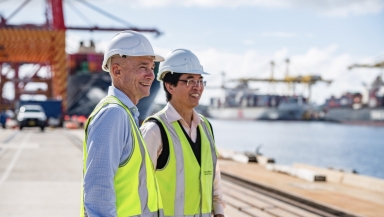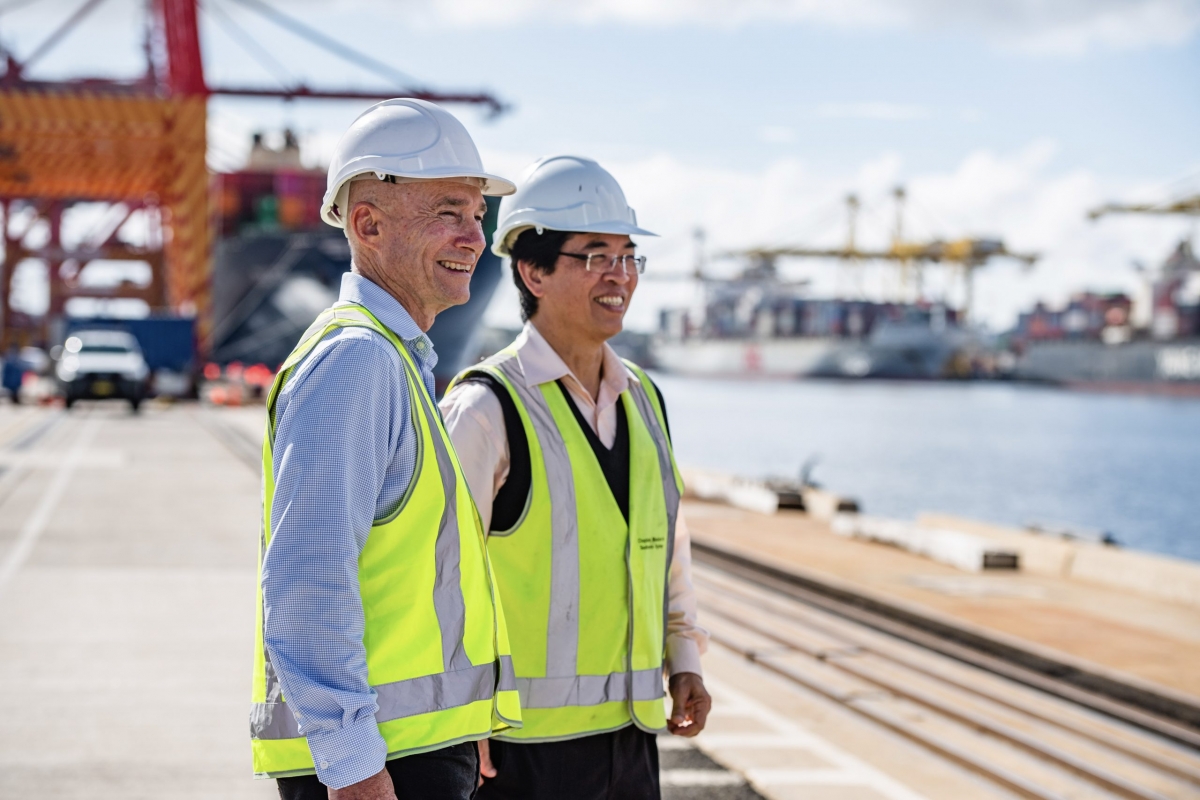
As the global shipping industry increasingly turns to new technologies to reduce expenses, the welfare of nearly two million seafarers is being called into focus by a Christian mission agency. These seafarers, who play a crucial role in transporting over 90% of the world’s goods and fuels across treacherous waters, are essential yet often unacknowledged workers.
The Mission to Seafarers (MtS) operates 121 centers worldwide, providing support by visiting over 40,000 ships annually. Despite their critical role, the well-being of ships’ crews is sometimes overlooked in the rush to innovate.
Peter Rouch, Secretary General of MtS, voiced concerns regarding the industry’s focus on cost-cutting technologies at the expense of crew welfare. He emphasized, “Conditions aboard ships should not focus solely on minimizing costs but also on ensuring the health and well-being of the crew. Humanly, as well as operationally sustainable crew sizes, shift rotations, and shore leave are essential for maintaining the mental and physical health of seafarers.”
Rouch warned that neglecting crew welfare could lead to increased mistakes, impacting both the industry and the individuals involved. “Those who enable global trade to function are human beings who will invariably flourish in a web of warm and healthy human relationships,” he noted.
While the industry is advancing with digital technology and low-carbon fuels, Rouch pointed out the human elements often remain secondary. He observed a maritime politician listing future industry challenges without mentioning the seafarers’ working lives.
He stated, “At its core, any human activity such as a commercial activity like shipping should serve the flourishing of humanity, and this includes the well-being of seafarers.” The MtS, rooted in faith and valuing human dignity, continues to advocate for seafarers, collaborating with like-minded industry partners.
Improvements in digital connectivity have helped seafarers stay in touch with families, but Rouch highlighted that this can also exacerbate feelings of isolation. Without a supportive onboard community, seafarers may feel more acutely the absence of family during long voyages.
The global seafaring community, which numbers over 1.89 million and includes diverse nationalities, often endures up to nine months away from loved ones, leading to potential loneliness and mental health challenges.
The Mission to Seafarers, originally established in 1856 as the Mission to Seaman, was renamed in 2000 to better reflect its inclusive mission.
Steve Morgan, European director of MtS, referred to seafarers as “our forgotten servants.” He explained, “We all rely on seafarers, as more than 90 per cent of our trade comes via the sea. That’s all our iPhones, fridges, olives, petrol and so on. But no one ever really sees this in action as it is behind the wire in a port with security controls.”
He added, “I think Jesus would have noticed them and as Christians we are called to serve the marginalised and forgotten. I would love to see churches pray for seafarers and support them.”
Rev Peter Crumpler is a Church of England minister in St Albans, Herts, UK, and a former communications director with the CofE.
This article was originally written by www.christiantoday.com







Be First to Comment